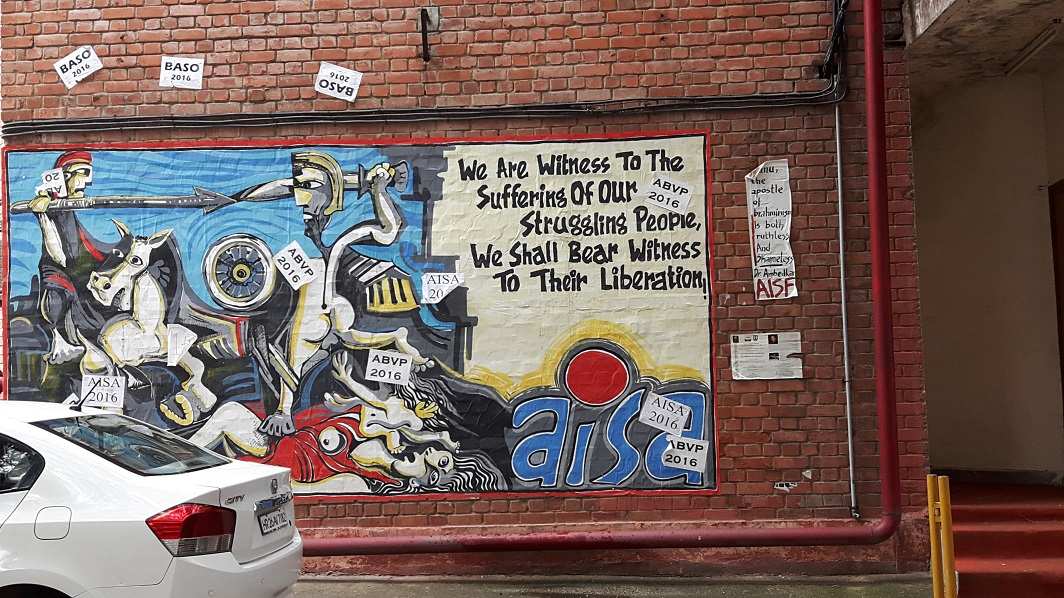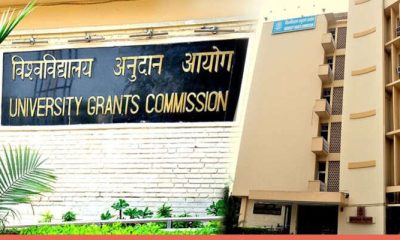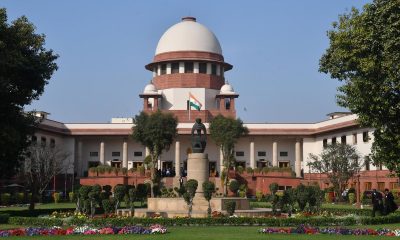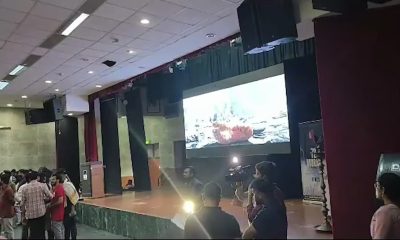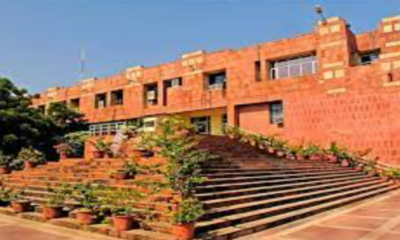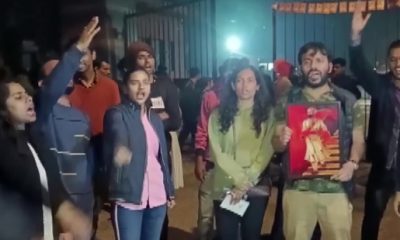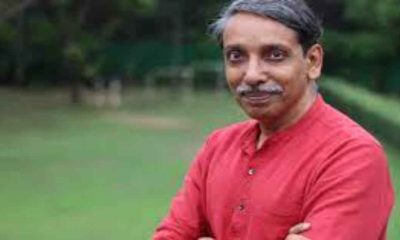India News
Save the university
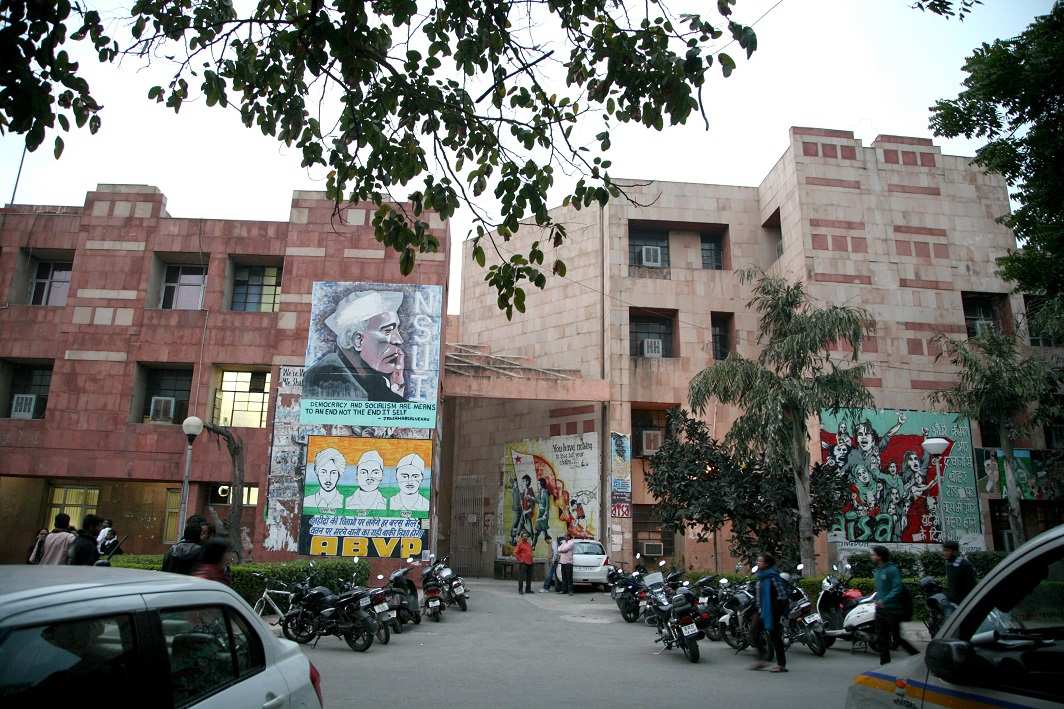
[vc_row][vc_column][vc_column_text]UGC’s decision to drastically cut the number of seats in MPhil and PhD courses will deplete JNU’s research base and affect education and society in ways policy-makers cannot at present contemplate
By Meha Mathur
Even as the Kanhaiya Kumar issue was cooling off within the JNU campus, the premier central university of the country was hit by a regulation that it will find difficult to circumvent. The new, strict UGC guideline will result in a drastic reduction in the number of MPhil and PhD seats in various streams.
The guideline of July 2016 stipulates that no professor can be a guide to more than three MPhil and eight PhD students at any point of time. This means that admissions to the forthcoming batch will depend on how many students are already enrolled under various professors—research work taking as many as five or six years. Then, there are programmes in which there can be no admission this year.
Here’s an overview of seat reduction in various schools, for which JNU is famed:
- School of Social Sciences: 232 (present strength 330)
- School of International Studies: 141 (present strength 232)
- School of Language, Literature and Culture Studies: 73 (present strength 227)
- No admission in MPhil and PhD this year at the Centre for Media Studies, Centre for African Studies, Centre for East African Studies, Centre for Indo-Pacific Studies, Centre for the Study of Discrimination and Exclusion
On the face of it, the UGC move to bring down the student-teacher ratio at research level seems very rational. After all, when international rankings of educational institutions are released, the student-teacher ratio and quality of teaching are important criteria, and cramped classrooms can’t aspire to figure on these lists. “No Indian institute among top 200 world universities, experts worried”, read a Hindustan Times headline in September 2016 when the Times Global rankings were released.
Excellence vs inclusivity
But then, there is more to it than meets the eye. Academics from JNU and Delhi University have voiced concerns at the long-term harm it will cause. The first issue that comes to mind is its impact on inclusivity. JNU is one of the few universities offering quality higher education and research opportunities at affordable cost. By limiting the number of seats, the government is shutting the door of opportunity on the poor.
Ajay Gudavarthy, associate professor of political science at JNU, says the move has been inspired by the aim of maintaining parity with global universities, but it can’t be feasible in a country of India’s size, where aspirations of people are now high. “The logic is fine, but you don’t have too many universities like JNU which can fulfil those aspirations of poor. This move will close opportunities for the disadvantaged youth of India.”
Ayesha Kidwai, professor at Centre of Linguistics in JNU, says this will push higher education out of the reach of poor. “So many youngsters come to JNU because they can avail of the opportunity by paying the same fee as the rich. Now, a good, affirmative action has been ended through this regulation. Instead of spreading such models of education, we are shrinking these options.”
Depleting research base
Then again, if you reduce the number of research scholars, who will teach at the level of higher education?
In a UGC report of 2008 titled “Higher Education in India: Issues Related to Expansion, Inclusiveness, Quality and Finance”, the then UGC chairman S Thorat had written about the then 11th Five Year Plan: “The 11th Plan recognised that the availability of adequate and qualified faculty is a pre-requisite for quality education. It also recognised that due to restrictions on the recruitment of the faculty in the state universities and colleges in 1980’s and 1990’s by various states, we faced serious problems related to the availability of faculty.” It seems that wisdom has again been lost on the policy makers.
Kidwai says that the national enrolment for PhDs is 0.5 percent. In all central universities it’s 3.2 percent, whereas in JNU it’s 62.5 percent. Now, this will come down to 15 to 20 percent. “Do you want MAs to teach in colleges?” she asks.
Abha Dev Habib, who teaches at Miranda House, Delhi University, says that for all the complaints that the research output is not good, we are reducing public money in education and the research grants have been constantly decreasing since 2013. The number of research proposals that have received grants has also come down and many institutions are feeling the pinch. Teachers in higher education are seen as a financial liability, because once they are recruited, they will have to be promoted, too. It’s clear, therefore, that all means are being adopted to dissuade research and recruitment in public institutions of higher learning.
The logical extension of this is that private universities will get more and more room to operate in research space, too. But as Gudavarthy points out, it will leave the poor out of the ambit of research. “About 50 percent of the students we have are poor. They will have to go back.” They might have to compromise on their dreams by joining second-rung universities, because private universities are outside their means.
What are the options?
Despite the Delhi High Court having already dismissed a petition from students for a stay on the UGC strictures on certain technical grounds, Siddiqui says the academics will not give in and that they will seek further legal recourse. But with the admission season already commencing, the future of at least the current batch of admission-seekers stands jeopardised.
The question that needs to be addressed in the long run is, what alternative does the government intend to provide to those who stand to lose? Are other universities on the anvil, offering research facilities on a par with JNU? Or does the government want to wean away youth from research and have them take up vocational and job-oriented courses only?
Move smacks of anti-intellectualism
Another dimension of the limit imposed on research students is the issue of politicisation. Abha Dev Habib puts it bluntly when she says that the government is disturbed by social movements. She says that JNU has a large number of research students who spend much more time on the campus than MA students, and there are more chances of their getting politicised. The government wants to minimise those chances. Kidwai agrees, saying this move smacks of “anti-intellectualism”.
The seat reduction has hit international studies and social sciences—disciplines associated with asking questions and with reasoning, in particular. Gudavarthy adds: “They don’t want a critical society. The focus is more on technology and vocational education. We will have a dearth of public intellectuals that way.”
Perhaps the move is also part of the shift away from research culture. After all, the Prime Minister has already set the agenda with “Harvard vs hard work”. There’s nothing wrong in having people respect vocational professions. But it takes all kinds of people to make this world. Pushing the pendulum to the other extreme will be counterproductive.
At this juncture, the questions need to be answered by policy-makers.
Photos by Anil Shakya and Meha Mathur[/vc_column_text][/vc_column][/vc_row]
2024 Lok Sabha Elections
Lok Sabha election 2024: Nearly 50% voter turnout recorded in second phase till 3 pm
The constituencies going to polls today include all 20 Lok Sabha seats in Kerala, 14 in Karnataka, 13 in Rajasthan, and others spread across different states.
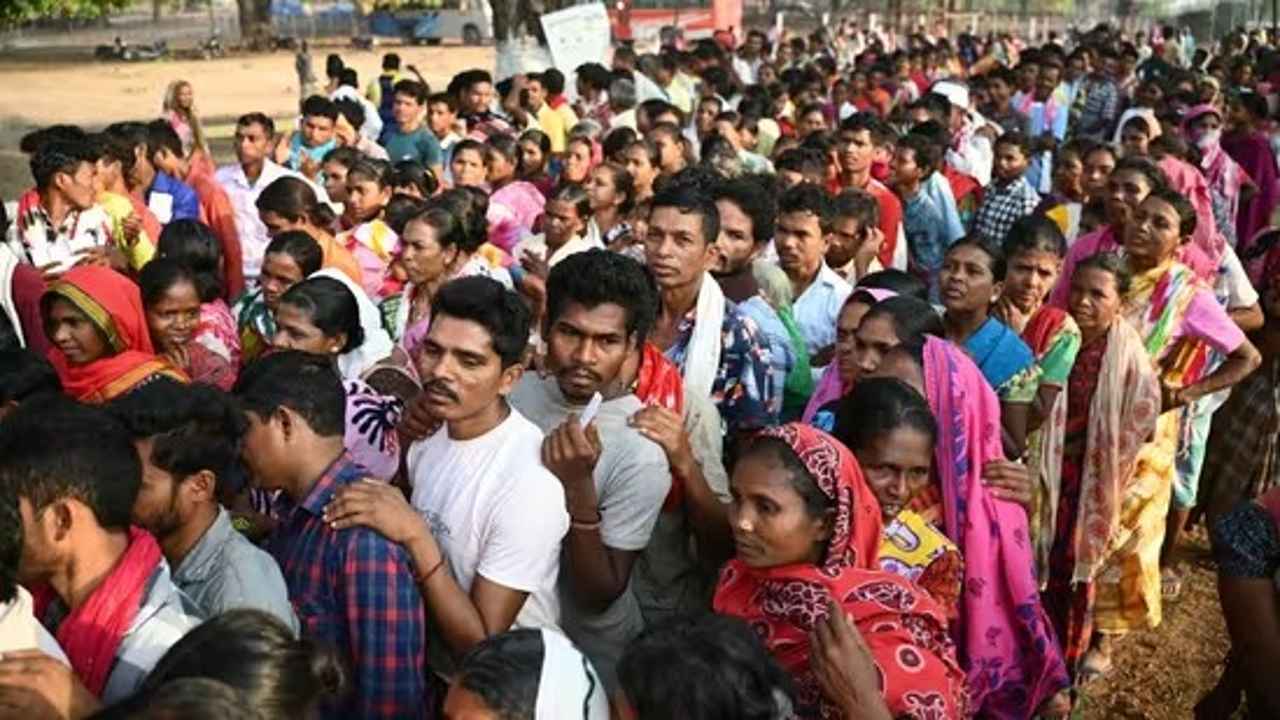
In the second phase of Lok Sabha elections 2024, over 50% of voters were registered in 13 states and the UTs till 3 p.m. 65% of voters participated in the first round of the Lok Sabha elections.
The 18th Lok Sabha elections are currently in their second phase, with voting for 88 seats taking place across 13 states and union territories. There are more than 1,200 people running for office, four of them are from outside Manipur.
Union minister Rajeev Chandrasekhar, BJP members Tejasvi Surya, Hema Malini, and Arun Govil, Rahul Gandhi and Congress leader Shashi Tharoor, DK Suresh, the brother of Karnataka Deputy Chief Minister DK Shivakumar, and former chief minister HD Kumaraswamy are among the notable contenders for the second phase.
In 2019, the NDA had won 56 of the 89 seats and the UPA 24. Six of these seats have been redrawn as part of the delimitation exercise.
The first phase of the seven stages of the elections took place on Friday, including 102 seats spread across 21 states and Union territories. Voter turnout was about 65.5% in the first phase, according to the reports.
In biggest festival of democracy, people from all walks of sector took part in it. A video went viral where former India captain and current Indian team head coach Rahul Dravid and former India player and head coach Anil Kumble were seen standing in line to cast their vote.
Meanwhile, voting started at 7 a.m. and will end at 6 p.m. The Election Commission has extended voting hours for those who are in line by an hour. According to Election Commission figures, the first two hours saw a 9.3% voter turnout throughout the 88 constituencies. By 9 am, Kerala had recorded 8.52%, Karnataka 9.21%, and Madhya Pradesh 13.82%.
In this phase, there were about 15.88 crore eligible voters, comprising 5.929 third-gender electors, 8.08 crore males, and 7.8 crore women. 3.28 crore young voters, aged 20 to 29, are among them; 34.8 lakh of them are first-time voters.
2024 Lok Sabha Elections
Lok Sabha elections 2024: 102-year-old man walks to polling booth to cast his vote in Jammu
The lowest voter turnout so far was noted in Ramgarh at 1.53%.
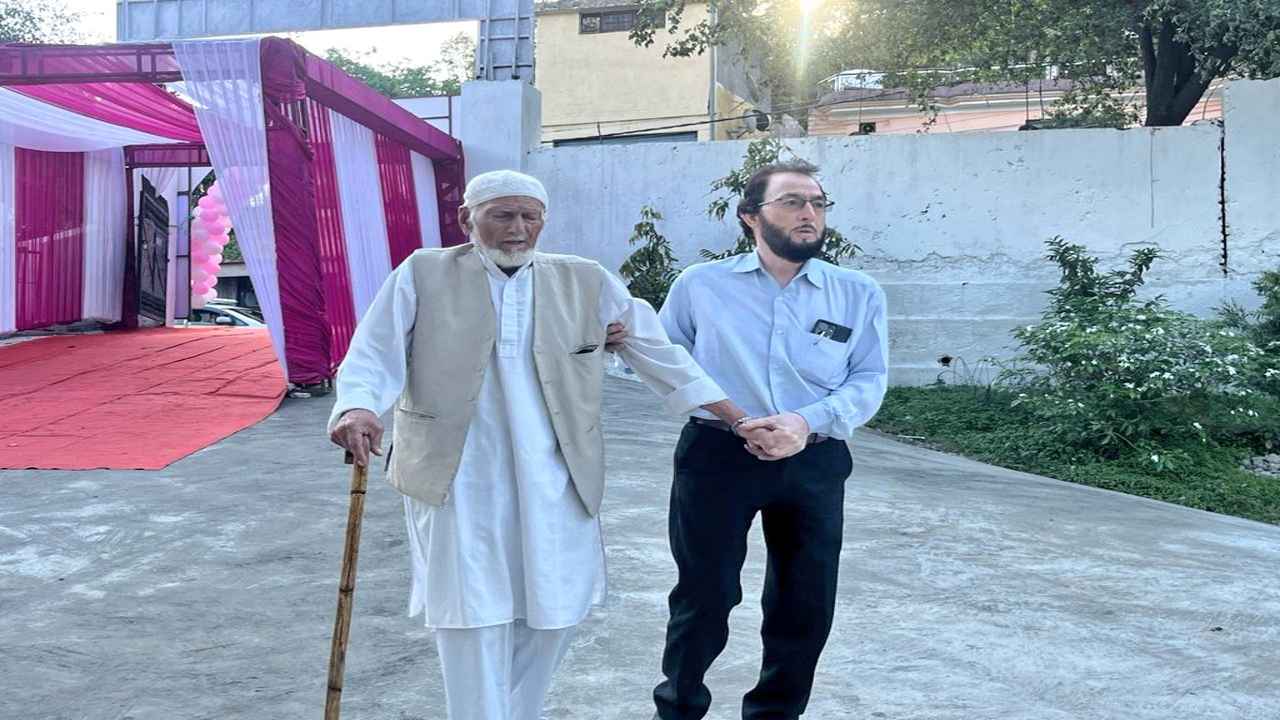
A 102-year-old man showed up at a Jammu polling place to cast his vote in the second phase of the Lok Sabha elections on Friday. Haji Karam Din arrived at the Reasi district polling place in the Jammu constituency with a walking stick in hand and a family member who assisted him with the pre-voting process.
Haji Karam Din, who is 102-year-old, showed his inked finger and posed for pictures outside the polling booth after casting his vote. He said voting at this polling place at this age makes him very happy. He has always cast his vote. Even at the age of 102, this experience is still ongoing, he said.
Reasi district is a part of the Jammu parliamentary constituency, and 22 candidates are up for vote with around 17.81 lakh eligible voters.
BJP’s sitting member Jugal Kishore Sharma is aiming for a third term in office following wins in the elections of 2014 and 2019. Former minister and Congress candidate Raman Bhalla is his main opponent.
Voting in the Jammu-Reasi Lok Sabha constituency began with eager voters showing up at the polling places. Some of them were wearing traditional Dogra attire.
In 2,416 polling places around the constituency, voting got underway at 7 a.m., and 10.39% of the total votes were cast by 9 a.m. In the 2019 Lok Sabha elections, Jammu recorded a 74% voter turnout.
Following the repeal of Article 370 and the division of the former state into two Union Territories five years ago, this is Jammu’s first significant election.
The Akhnoor segment received the highest percentage of votes, 14.24%, followed by Reasi (14.13%), Gulabgarh (13.53%), Shri Mata Vaishnodevi (12.71%), Marh (12.31%), Samba (8.56%), R S Pura Jammu South (8.17%), and Suchetgarh (5.67%), according to the officials. Ramgarh recorded the lowest voter participation of 1.53% so far.
Low attendance was observed in the border areas of the districts of Jammu and Samba till nine in the morning, according to poll data.
The officials said that big lines of voters were observed at several polling places throughout Jammu city. Voters were observed heading towards polling places early in the morning.
India News
Salman Khan house firing case: NIA interrogates arrested shooters Sagar Pal, Vicky Gupta for three hours
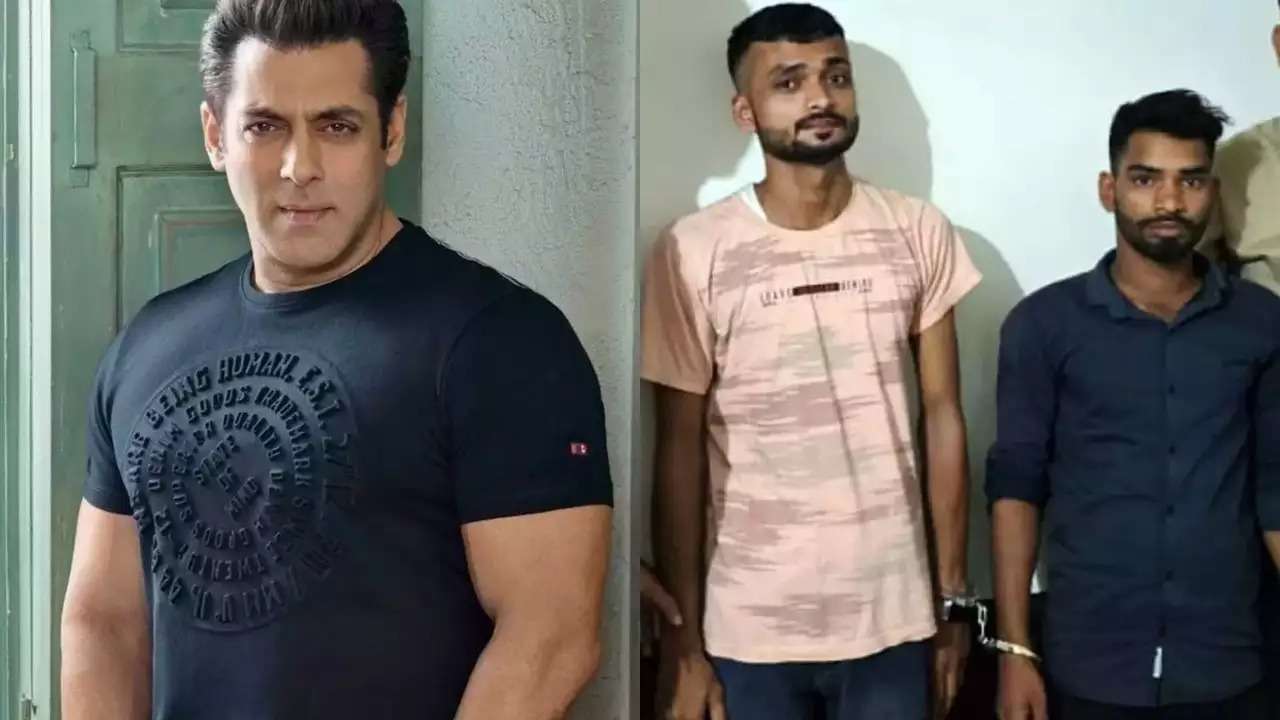
The investigation into the shocking firing incident that took place outside Salman Khan’s house on April 14 keeps bringing new updates with every passing day. In this case, Sagar Pal and Vicky Gupta, the two suspected shooters, have already been taken into custody.
The two shooters have reportedly been questioned by the National Investigation Agency (NIA), according to a new development. Every day that goes by, more information is revealed about the inquiry into the shocking firing incident that happened outside Salman Khan’s house on April 14. Sagar Pal and Vicky Gupta, the two accused shooters, are being held in custody after their first arrests.
It was recently discovered that the two shooters were questioned by the National Investigation Agency (NIA).
NIA has reportedly begun questioning Sagar Pal and Vicky Gupta, who were detained a few days ago for firing openly outside Salman Khan’s Galaxy Apartments in Mumbai, according to a recent update posted on their X (Twitter) account. NIA has interrogated shooters Vicky Gupta and Sagar Pal, arrested in the firing case, the tweet said.
According to the reports, two Punjabi residents were taken into custody by the Mumbai Crime Branch yesterday on suspicion of being involved in the recent shooting incident outside the house of Bollywood actor Salman Khan.
The two men, Sonu Subhash Chander and Anuj Thapan, provided guns to Sagar Pal and Vicky Gupta, the shooters, according to information released by the Mumbai Crime Branch. It was also reported that they had communication with the Bishnoi gang. For those who don’t know, hours after the incident, Anmol Bishnoi, the brother of gangster Lawrence Bishnoi, allegedly took credit for the firing in a Facebook post.
The shooters’ custody has been extended by Mumbai’s Esplanade Court until April 29.
Meanwhile, on the workfront Salman Khan was last seen in Tiger 3 alongside Katrina Kaif.
-
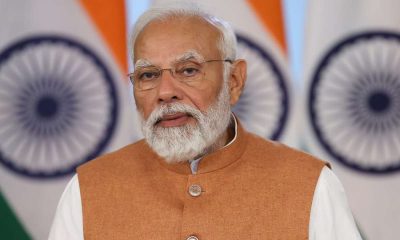
 2024 Lok Sabha Elections13 hours ago
2024 Lok Sabha Elections13 hours agoPM Modi calls for high voter turnout in second phase of Lok Sabha elections 2024, says your vote is your voice
-
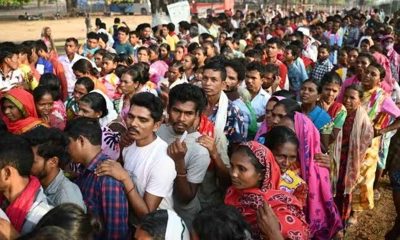
 2024 Lok Sabha Elections7 hours ago
2024 Lok Sabha Elections7 hours agoLok Sabha election 2024: Nearly 50% voter turnout recorded in second phase till 3 pm
-

 India News12 hours ago
India News12 hours agoSalman Khan house firing case: NIA interrogates arrested shooters Sagar Pal, Vicky Gupta for three hours
-
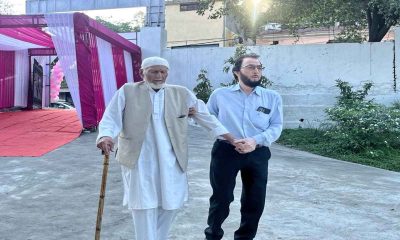
 2024 Lok Sabha Elections10 hours ago
2024 Lok Sabha Elections10 hours agoLok Sabha elections 2024: 102-year-old man walks to polling booth to cast his vote in Jammu
-
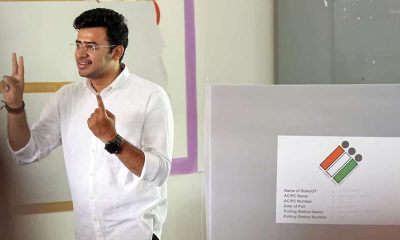
 2024 Lok Sabha Elections6 hours ago
2024 Lok Sabha Elections6 hours agoElection Commission books BJP MP Tejasvi Surya for seeking votes in the name of religion

